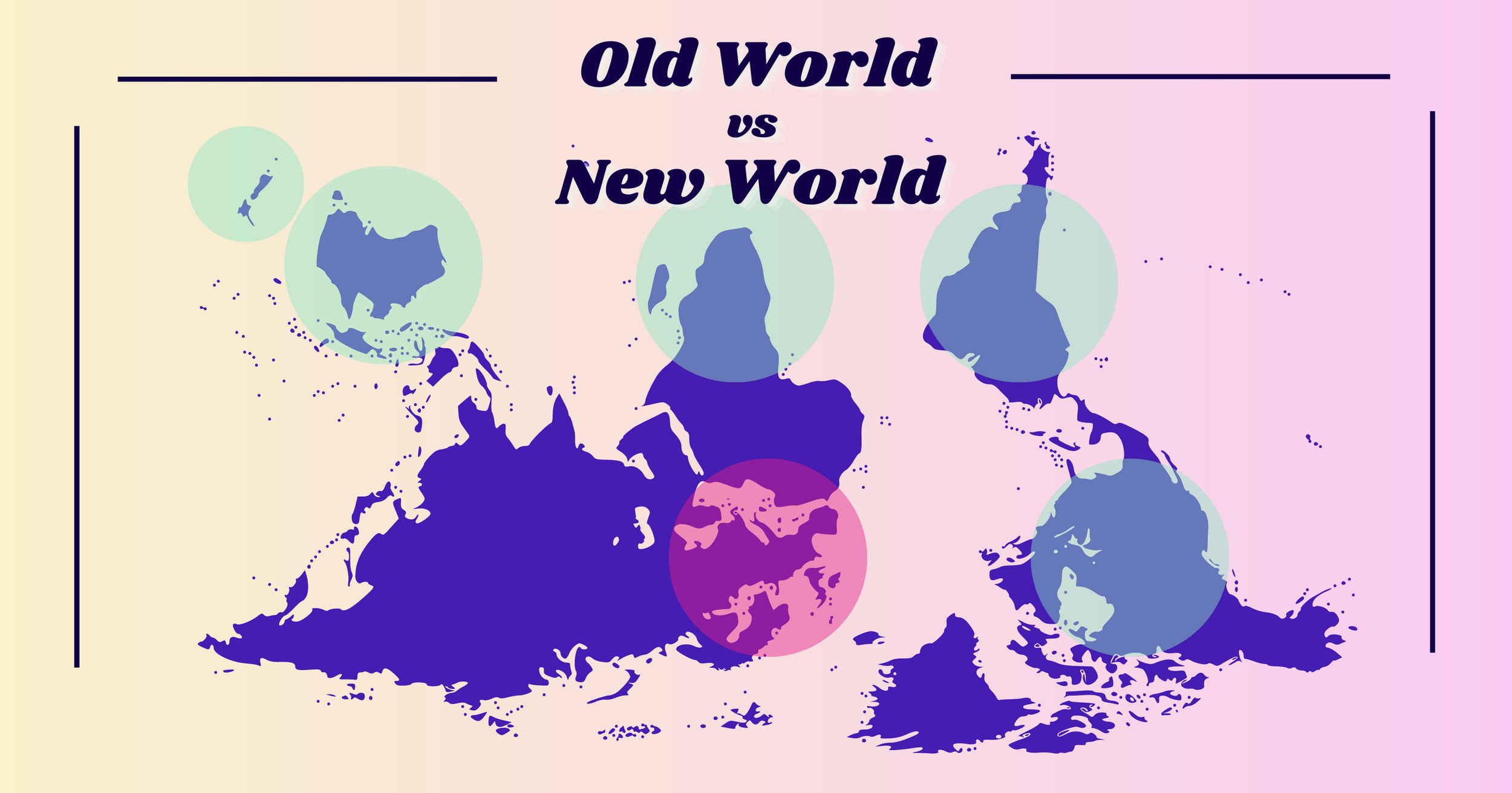What do “Old World” and “New World” in wine mean? 🤷🏾♂️
I get this question more often than I would have originally expected, and it makes sense that this is confusing given that the “World” is equally old, regardless of where you go (the Earth is 4.543 years old 😮). If we disagree about the age of the Earth based on religious scriptures as opposed to science, I’d politely ask that we part ways here.
The wine industry’s definitions of “Old World” and “New World” are extremely reductionist and borderline ignorant. However, acknowledging that their use is commonplace, it’s useful to understand what they mean, and where their origins lie. “Old World” refers, essentially, to Europe, and “New World” refers essentially to the rest of the world (Asia, not included). You can think of Old World as any country that was at one time a colonial power, and “New World” as any country that was at one time a colony (again, Asia, not included). By this heuristic, “Old World” means France, Italy, Germany, Spain, Portugal, etc., and “New World” means the Americas, Australia, South Africa, etc.
If it’s not yet readily apparent, this classification of “Old World” and “New World” is extremely reductionist because Asia is a pretty darn old part of the world too. Obviously, it’s as old as the rest of the world in geological terms, but, even in terms of the origins of human beings and civilization, it is an ancient part of the world. Being born in India, I’m not thrilled with the terminology. Beyond my personal feelings though, given that “Old World” has become colloquially acceptable as a synonym for “Europe,” it tacitly implies that the origins of wine are European, when that is, in fact, not the case. It’s extremely convenient to the powers at be in the wine industry that everyone thinks that wine was born in the Old World, despite that being dead wrong. Wine was born in Asia, in Georgia (the country). See our blog post, or, better yet, join unPINNED and get access to our documentary In Pursuit of Flavor shot entirely in Georgia with one purpose — to tell the stories of the birthplace of wine.
All that said, it’s unlikely that we’re going to abandon using the terminology “Old World” because it is, in fact, convenient, but perhaps we can at least acknowledge its origins when we do use it.

